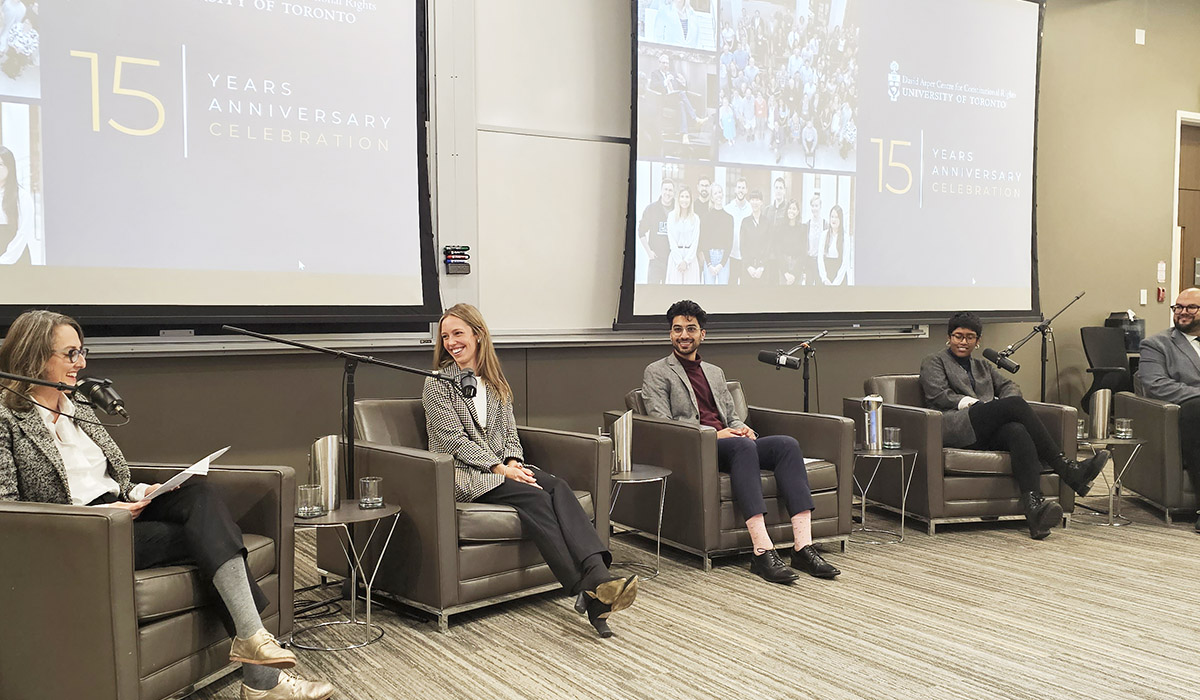We are pleased to announce that Mary Birdsell has been selected as the Asper Centre’s new Constitutional Litigator in Residence for Fall 2024.
Mary will be co-teaching the Asper Centre’s Clinic Course in the Fall 2024 term with our Executive Director, Cheryl Milne. This course offers upper year law students at the University of Toronto the unique opportunity to engage in Charter rights advocacy, including Charter and Constitutional litigation. Mary will bring her extensive constitutional litigation and children’s rights experience to the role and will greatly enrich the Asper Centre’s Clinic students next term. Amongst other projects, Mary will work with students on our Voting Age challenge.
Mary Birdsell is a lawyer and the Executive Director at Justice for Children and Youth (JFCY). JFCY is a child and youth rights organization and legal clinic that protects and advances the legal, equity, and human rights of children and youth. It provides representation and legal assistance to young people across a range of legal subjects including criminal justice, education, victim representation, child welfare, health and mental health, homelessness, human rights, immigration, and more. Mary is a child rights expert and a tireless advocate, providing legal services to young people who are facing significant adversity, and have complex personal, social and legal issues. She has appeared as counsel or as intervener at every level of court on a range of child rights matters. Mary has been involved with countless community organizations, engages in law reform activities, provides public legal education, and professional development. She has been significantly involved with OBA and the CBA, including as having been Chair of the Child and Youth Law Section in each organization. She is a former Board Member of the Canadian Coalition for the Rights of Children, and is currently on the Board of A Way Home Canada. Mary is the co-author of “Prosecuting and Defending Youth Criminal Justice Cases: A Practitioner’s Handbook”, 3nd ed. 2024.


